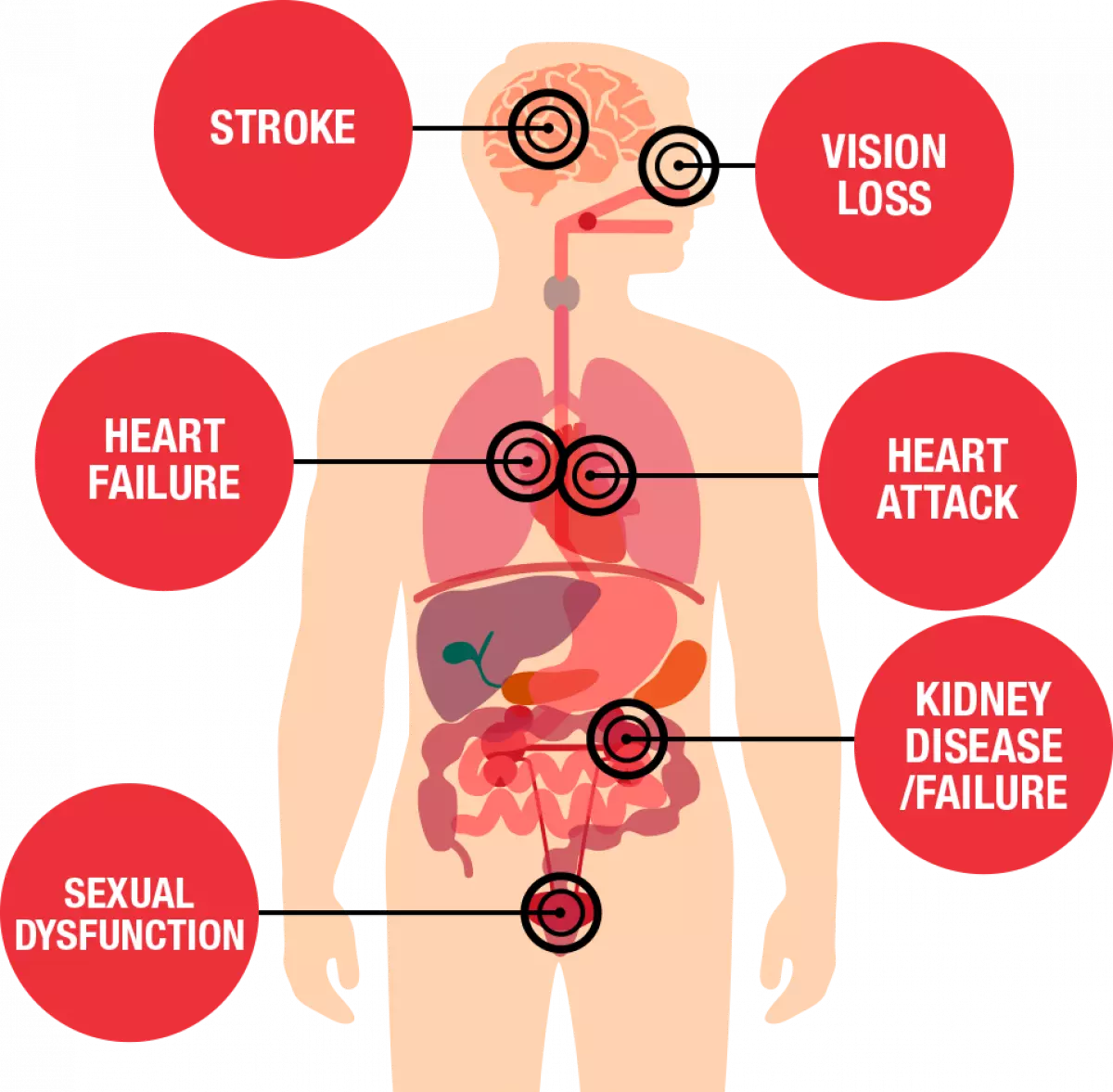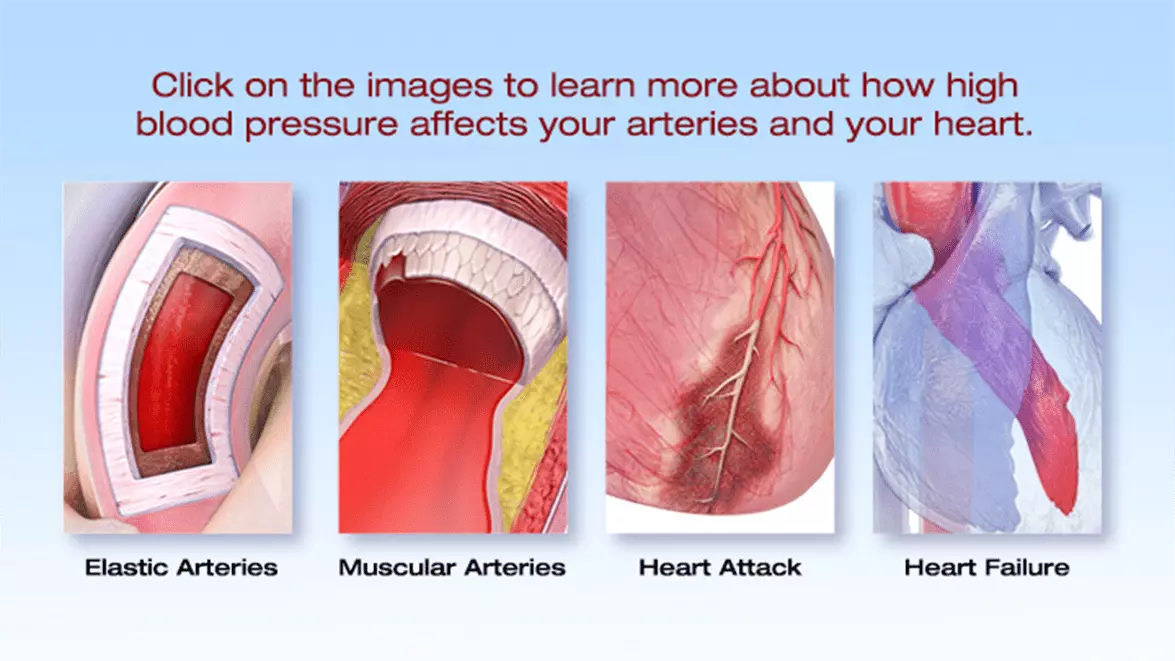
Introduction
High blood pressure, also known as hypertension, poses significant threats to your overall health and quality of life. While the damage caused by high blood pressure often occurs gradually, if left undetected or uncontrolled, it can lead to severe consequences. In this article, we will explore the various health risks associated with high blood pressure and discuss the necessary steps to protect yourself.
High Blood Pressure and its Health Implications
Heart Attack
High blood pressure damages arteries, leading to potential blockages that restrict blood flow to the heart muscle. This restriction can result in a heart attack, which is a life-threatening condition that requires immediate medical attention.
Stroke
Blood vessels supplying blood and oxygen to the brain can become blocked or burst due to high blood pressure, leading to a stroke. Strokes can cause severe neurological damage and, in some cases, be fatal.
Heart Failure
The increased workload on the heart caused by high blood pressure can cause it to enlarge and weaken, resulting in heart failure. This condition prevents the heart from adequately pumping blood to the rest of the body.
Kidney Disease or Failure
High blood pressure can damage the arteries around the kidneys, impairing their ability to effectively filter blood. This damage may eventually lead to kidney disease or complete kidney failure.
Vision Loss
The strain or damage to blood vessels in the eyes caused by high blood pressure can result in vision loss. It is crucial to prioritize the management of blood pressure to protect your eyesight.
Sexual Dysfunction
In men, high blood pressure can contribute to erectile dysfunction, while women might experience a decrease in libido. Addressing high blood pressure can help maintain healthy sexual function.
Angina
High blood pressure, if left uncontrolled, can lead to heart disease, including microvascular disease (MVD). Angina, characterized by chest pain, is a common symptom of heart disease related to high blood pressure.
Peripheral Artery Disease (PAD)
Atherosclerosis caused by high blood pressure can lead to narrowed arteries in various parts of the body, such as the legs, arms, stomach, and head. This can result in pain or fatigue due to restricted blood flow.
 Figure: High blood pressure damaging the heart.
Figure: High blood pressure damaging the heart.
Your Best Protection: Knowledge, Management, and Prevention
To safeguard yourself from the dangers of high blood pressure, it is crucial to take the following steps:
-
Know your numbers: Regularly monitor your blood pressure to stay informed about your health status.
-
Understand the symptoms and risks: Educate yourself about the factors that increase the likelihood of developing high blood pressure and the associated medical risks.
-
Make changes that matter: Implement heart-healthy lifestyle changes, such as maintaining a balanced diet, engaging in regular physical activity, and effectively managing stress. Follow your prescribed medication regimen and actively collaborate with your healthcare professionals.
High Blood Pressure and Hypertensive Crisis
If your blood pressure readings exceed 180/120 mm Hg and you experience symptoms such as intense headaches, chest pain, nausea/vomiting, or dizziness, it is imperative to call 911 immediately. In the absence of symptoms, wait five minutes and then retest your blood pressure. If it remains unusually high, seek immediate medical attention, even if you do not experience other symptoms associated with organ damage, such as chest pain, shortness of breath, back pain, numbness/weakness, changes in vision, or difficulty speaking. This could indicate a hypertensive crisis.
High Blood Pressure and Metabolic Syndrome
Metabolic syndrome is a cluster of risk factors, including high blood pressure, that significantly increase the chances of developing heart disease, diabetes, stroke, and other health problems. The syndrome is diagnosed when an individual has at least three of the following risk factors: high blood glucose (sugar), low levels of HDL (good) cholesterol, high levels of triglycerides, large waist circumference, or high blood pressure. Understanding and actively managing these risk factors is essential to mitigate the health risks associated with metabolic syndrome.
Download the [metabolic syndrome fact sheet (PDF)](link to the PDF).
Remember, prioritizing your health by understanding the risks and taking appropriate measures to manage and prevent high blood pressure is the key to living a healthy and fulfilling life. So, take charge of your well-being today!


















